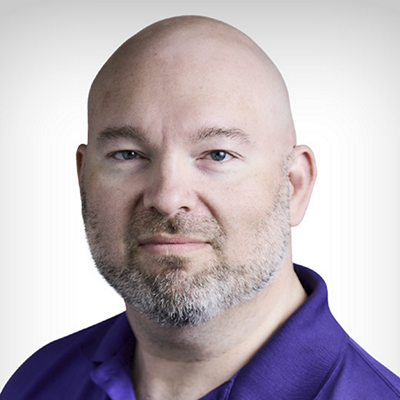Explore challenges and solutions in AI chip development
Meet one of our new employees, Dr. Eric Schiesser, Optical Software Developer, who recently joined the Synopsys Optical Solutions Group. He’s a recent graduate from the University of Rochester, with his thesis research in Freeform Telescope Design. Prior to his Ph.D. in Optics, Eric also obtained his B.S in Physics and Optical Engineering from University of Rochester with highest honors (magna cum laude) in May 2012.
Eric is the recipient of 2015 Michael Kidger Memorial Scholarship, Frank J. Horton Graduate Research Fellowship, and 2012 Newport Award for Outstanding Academic Performance.

Q: How did you decide to study optics?
A: My first memory of optics was very carefully playing with my grandfather’s kaleidoscope collection. My grandfather, David C. Bliek, worked in the optics industry during his career, and he introduced me to other optical instruments over the years, including some he built himself. I originally intended to study physics at the University of Rochester, but I decided to take a few optics courses in my freshman year at UR due to the reputation of the Institute of Optics and my interest in optics from my grandfather.
Q: What were your studies like at the University of Rochester? Was there any professor who inspired you?
A: Ultimately, I couldn’t decide between a degree in Physics and Optical Engineering, so I decided to delay the decision and pursue two majors. There was some significant overlap, but I feel that I benefited from the paradigms in both disciplines and they complemented each other. I also studied some German (which turned out to be helpful for understanding the etymology of some optics terminology) and I took a few courses in economics that I enjoyed.
Coming into my undergraduate studies, I was not the most rigorous student. The intense rigor in the optics curriculum at University of Rochester, however, challenged me and forced me to be a focused scholar (pun entirely intended). I feel I received a good mix of the theoretical and practical, which helped prepare me for the two internships I was able to take on during my undergrad studies and another just after graduation before starting my Ph.D. studies.
My first optics course was geometrical optics taught by Professor James Zavislan. Jim’s course got me hooked on optics, and Jim offered me sage counseling at key times during my undergraduate studies. I found out in graduate school that we both shared a love for ice hockey, and we actually met on the ice a few mornings at Genesee Valley Ice Arena near campus.
Q: How did you decide to research freeform optics? Or, what interested you about it?
A: I viewed freeform optics as the next frontier in geometrical optics, and I was eager to learn more about it and to hopefully play a small part in pushing that frontier forward. I had interest in lens design, and the additional degrees of freedom afforded by freeform optics was an exciting prospect to help me as a lens designer. Dr. Kyle Fuerschbach and Dr. Aaron Bauer influenced me to join Prof. Jannick Rolland’s research group. I was lucky enough to learn about Nodal Aberration Theory from the late Dr. Kevin Rolland-Thompson and that really solidified my interest in the field. The freeform revolution has made substantial progress since I first decided to get involved, and I can’t wait to see what the future holds for freeform!
Q: What made you decide to work for Synopsys, and how has that been like so far?
A: In my graduate work, I always enjoyed creating useful tools for myself. Much of the time, these were software programs I was writing to help me gather or analyze data related to my research, which often interfaced with CODE V. I began to imagine making a career of software development, and so Synopsys Optical Solutions Group (OSG) was a natural fit. Learning about the innovative culture of Synopsys and meeting the bright people at OSG gave me confidence that this was a career I would succeed in and enjoy!
It has thus far been an incredible learning experience. By working on a product that has a long heritage like CODE V, you get to see a history of innovation in the algorithms that constitute the software. I first got to experience CODE V as a user, and now to experience it as a developer has been enlightening and revelatory.
Q: What are your aspirations for the future?
A: I want to make it easier and faster to design and analyze optical systems. That might mean coming up with a new twist on an old paradigm in design, or breaking old paradigms altogether to advance the field.
Q: Any advice for those on a similar path in the optics industry?
A: I am still looking for advice myself, but here is some advice I wish had been given to me: find a topic you enjoy, explore it deeply and from many angles, and share your knowledge with humility. My most expeditious learning experiences have come when I deign to distribute what I think I know.
Q: What are some things that you do for fun?
A: I mentioned that I love ice hockey, but it has been some time since I have been on the ice due to the pandemic. In the interim, I have gotten back into hobbyist 3D printing. I have also been into fermentation, making anything from beer and cider to kimchi and sauerkraut. Rotten vegetables don’t really compare to the speed and fun of ice hockey, so I really look forward to getting back on the ice!


Fermenting chilies and much more!












